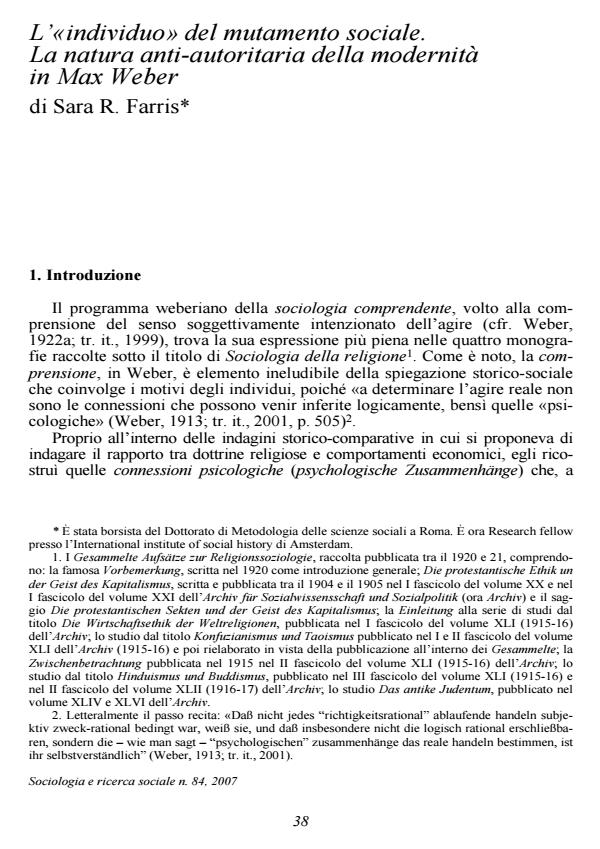L’«individuo» del mutamento sociale. La natura anti-autoritaria della modernità in Max Weber
Journal title SOCIOLOGIA E RICERCA SOCIALE
Author/s Sara R. Farris
Publishing Year 2008 Issue 2007/84
Language Italian Pages 25 P. 38-62 File size 218 KB
DOI
DOI is like a bar code for intellectual property: to have more infomation
click here
Below, you can see the article first page
If you want to buy this article in PDF format, you can do it, following the instructions to buy download credits

FrancoAngeli is member of Publishers International Linking Association, Inc (PILA), a not-for-profit association which run the CrossRef service enabling links to and from online scholarly content.
The moment of interpretive understanding in Max Weber’s Sociology of Religion has been interpreted taking into consideration the sceticism/mysticism dichotomy, and its combination with intra and ultra mundane levels. This essay states the need to take a different point of view. The moment of Verstehen is directed to the reconstruction of individualization processes and their assumptions and historic and politic implications. In the attempt to reconstruct the types of individual that have inaugurated or inhibited western modernity, Weber singles out elements conveyed by Weltreligionen, that structure different constellations of personality, more or less oriented towards change. In this picture, the extremely social and political human individual, at the origin of Modernity expresses anti-authority and individualistic characteristics as the ability to emerge from the constrictions of being member of a group.
Sara R. Farris, L’«individuo» del mutamento sociale. La natura anti-autoritaria della modernità in Max Weber in "SOCIOLOGIA E RICERCA SOCIALE " 84/2007, pp 38-62, DOI: